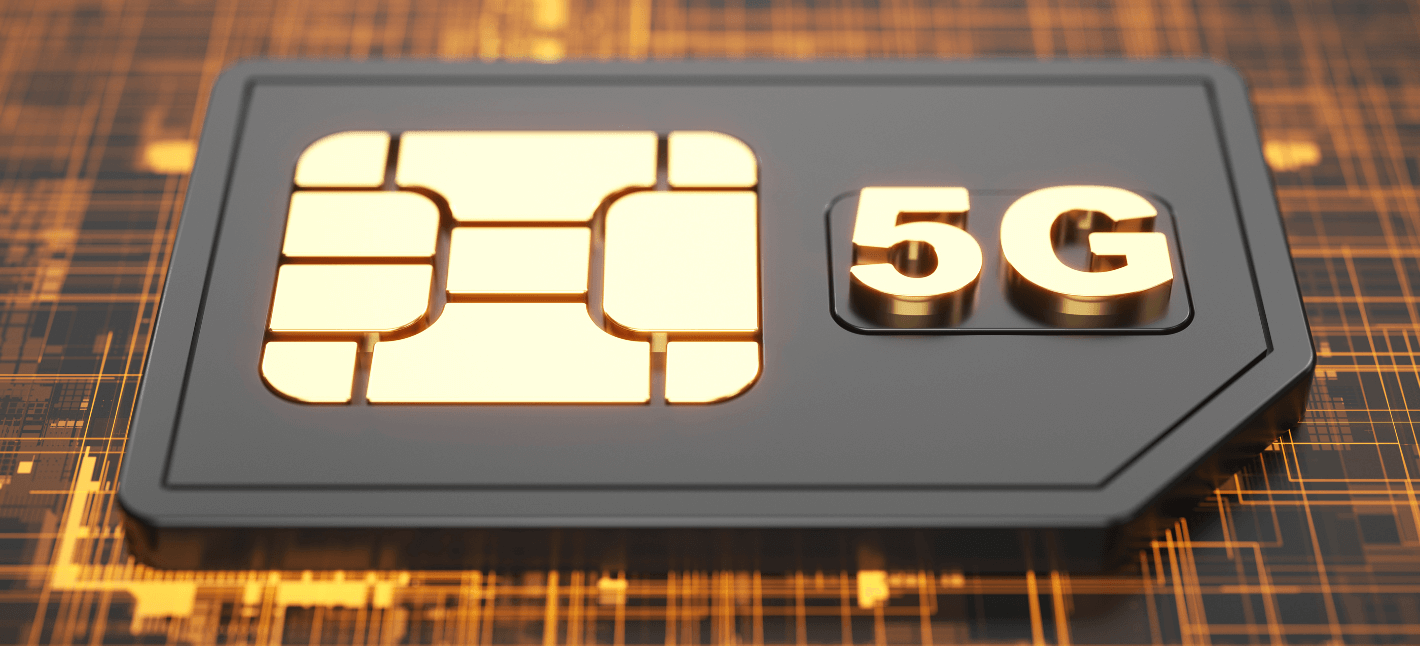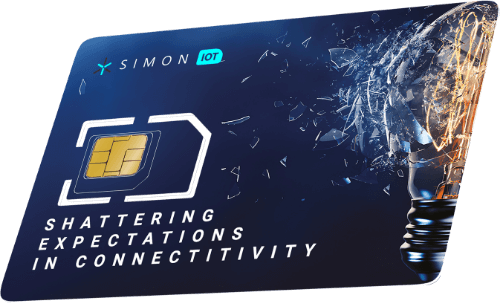Iot Gsm Sim Card Single-Core Global eUICC IoT SIM
Iot Gsm Sim Card Single-Core Global eUICC IoT SIM
Blog Article
Iot Sim Card Guide IoT SIM
The increasing demand for secure IoT connectivity for healthcare devices has become critical within the fashionable medical panorama. Healthcare providers are leveraging IoT devices to watch patients, streamline operations, and improve total patient care. However, this surge in connectivity presents several challenges, notably concerning patient data safety and system integrity.
IoT gadgets in healthcare can vary from wearables and smart house devices to implanted monitoring systems. Each of those units collects sensitive patient data. Therefore, the safety of IoT connectivity is paramount to protect affected person confidentiality and preserve trust in healthcare services. A breach can have dire penalties, together with id theft and unauthorized access to medical information.
Secure IoT connectivity entails using advanced safety protocols and technologies that guarantee data integrity and safety from cyber threats. Encryption is a elementary component when transmitting information between units and healthcare networks. Without encryption, data can simply be intercepted by malicious actors during transmission.
Moreover, authentication measures are necessary to guarantee that only licensed devices can connect with healthcare systems. This provides a layer of protection towards unauthorized entry, which might lead to significant knowledge breaches. Utilizing multi-factor authentication mechanisms helps reinforce the security framework of healthcare IoT techniques.
Sim Card Iot IoT SIM Cards
Another important side of safe IoT connectivity for healthcare devices is common software updates. These updates often embrace security patches that handle vulnerabilities. Ensuring that devices are up to date persistently can considerably scale back the risk of cyberattacks. The problem lies in automating these updates across quite a few devices with out disrupting healthcare services.
Implementing strong firewalls and intrusion detection systems can be essential in sustaining secure IoT connectivity. Firewalls function protective obstacles that filter incoming and outgoing site visitors, only permitting authorized information to pass via. Intrusion detection systems, however, repeatedly monitor network activity to identify and reply to suspicious behavior in real-time.
Compliance with healthcare laws is one other crucial consideration. Various legal guidelines, such as HIPAA within the United States, govern the use of personal health data. Healthcare organizations must be certain that their IoT devices adjust to these rules to avoid legal repercussions and penalties. Regular audits may help ensure that all linked devices meet regulatory standards.
Interoperability poses unique challenges in securing IoT units within healthcare frameworks. Different units from varied manufacturers typically use various protocols, making it difficult to create a unified security strategy. Establishing widespread standards for safe IoT connectivity can help healthcare organizations build a cohesive security method.
Sim Card Iot IoT SIM Card

Training employees to acknowledge potential security threats is important for maintaining a safe environment. Human error is usually a big vulnerability in cybersecurity. Regular coaching sessions might help healthcare professionals acknowledge phishing attempts and other cybersecurity dangers, thereby fostering a culture of safety consciousness.
The position of community segmentation can't be ignored in promoting secure IoT connectivity. By dividing the community into smaller segments, healthcare organizations can contain potential breaches within a restricted space. This approach minimizes the danger of a widespread assault affecting critical systems and sensitive knowledge.
2g Iot Sim Card IoT SIM Cards Explained Understanding Differences

The marketplace for IoT units in healthcare is set to broaden significantly within the coming years. Therefore, it's essential for stakeholders to prioritize secure connectivity from the outset. Developing safe gadgets and comprehensive strategies won't only improve affected person trust but in addition ensure that healthcare methods stay resilient against emerging threats.
As healthcare continues its digital transformation, the implementation of safe IoT connectivity will turn into increasingly very important. Stakeholders should keep knowledgeable about evolving technologies and threats to make data-driven decisions. An ongoing commitment to safety may help healthcare organizations navigate this advanced landscape effectively.
Global Iot Sim Card Narrowband IoT SIM cards
In conclusion, securing IoT connectivity for healthcare devices is a multifaceted problem that requires a complete approach incorporating advanced technologies, regulatory compliance, and employees coaching. An built-in strategy will not only improve affected person safety but also fortify healthcare organizations towards a plethora of cybersecurity threats. By addressing these points proactively, the healthcare trade can totally harness the benefits of IoT while safeguarding patient’s health information in an ever-evolving digital environment.
- Implement end-to-end encryption to safeguard patient knowledge transmitted between IoT gadgets and healthcare techniques.
- Utilize safe, cloud-based platforms to streamline real-time information entry whereas sustaining stringent access controls.
- Conduct common safety audits and vulnerability assessments to identify and mitigate potential risks in IoT device networks.
- Enforce comprehensive authentication protocols, similar to multi-factor authentication, to restrict unauthorized access to sensitive health knowledge.
- Develop and keep strict compliance with regulatory frameworks like HIPAA, guaranteeing all IoT connectivity practices align with healthcare standards.
- Advocate for gadget differentiation, guaranteeing that every IoT gadget is uniquely identifiable to prevent IP spoofing and other cyber threats.
- Educate healthcare professionals on best practices for managing and utilizing linked gadgets in scientific settings to boost consciousness and preparedness.
- Foster collaboration between producers and healthcare suppliers to ascertain safety standards and protocols for IoT units.
- Incorporate machine learning algorithms to determine anomalous behaviors in device interactions, enabling rapid detection of potential breaches.
- Invest in robust incident response plans that may handle and mitigate the impression of IoT-related safety incidents in healthcare environments.undefinedWhat is IoT connectivity in healthcare devices?
IoT connectivity in healthcare refers to the integration of internet-enabled gadgets that monitor and change affected person knowledge in real-time, making certain continuous health information assortment and administration for better affected person outcomes.
Why is secure IoT connectivity necessary for healthcare devices?
Global Sim Card Iot International IoT M2M SIM Card

Secure IoT connectivity is crucial because it protects delicate affected person information from breaches and cyberattacks, guaranteeing compliance with rules like HIPAA, and sustaining affected person belief in digital health options.
How is patient information encrypted throughout transmission?
Patient knowledge is usually encrypted using industry-standard protocols such as TLS/SSL, ensuring that the information stays confidential because it travels between units and servers.
What measures can healthcare organizations take to ensure secure IoT connectivity?
Iot Sim Card Europe IoT SIM Cards Available Anyone
Organizations can implement measures similar to regular software updates, strong authentication strategies, community segmentation, and steady monitoring for vulnerabilities to reinforce security for their IoT devices.
What are the potential dangers of insecure IoT connectivity in healthcare?

Insecure IoT connectivity can lead to knowledge breaches, unauthorized access to patient information, compromised gadget performance, and doubtlessly harmful impacts on affected person care because of lack of belief in digital health options.
How can I confirm the safety of a healthcare IoT device?
What Are Iot Sim Card.
Iot Sim Card IoT SIM Cards Cellular M2M Connectivity
Look for gadgets that adhere to acknowledged security standards, offer common updates, utilize strong encryption strategies, and help multi-factor authentication to ensure sturdy security measures are in place.
What function does knowledge privacy play in safe IoT connectivity in healthcare?
Data privateness is crucial in secure IoT connectivity, as find it governs how affected person data is collected, stored, and shared. Compliance with privacy rules is important to protect patient rights and keep confidentiality.
Are there particular regulations governing IoT security in healthcare?
Iot Sim Card Europe.
Sim Card Iot Ruggedized IoT SIM eSIM
Yes, regulations like HIPAA in go to my blog the United States set stringent tips for shielding patient knowledge. Other frameworks and standards, similar to GDPR in Europe, also tackle IoT security in healthcare contexts.
How can healthcare providers educate patients about IoT device security?
Providers can educate patients by way of informative materials, workshops, and one-on-one discussions, emphasizing greatest practices for knowledge privacy, the importance of safe connectivity, and tips on how to shield private health info.
Report this page